Featured Panoramic Photo Above:
Classic Charles Conlon photo of Ty Cobb sliding into Jimmy Austin
Baseball History Comes Alive Now Ranked As a Top Five Website by Feedspot Among All Baseball History Websites and Blogs!
(Check out Feedspot's list of the Top 35 Baseball History websites and blogs)
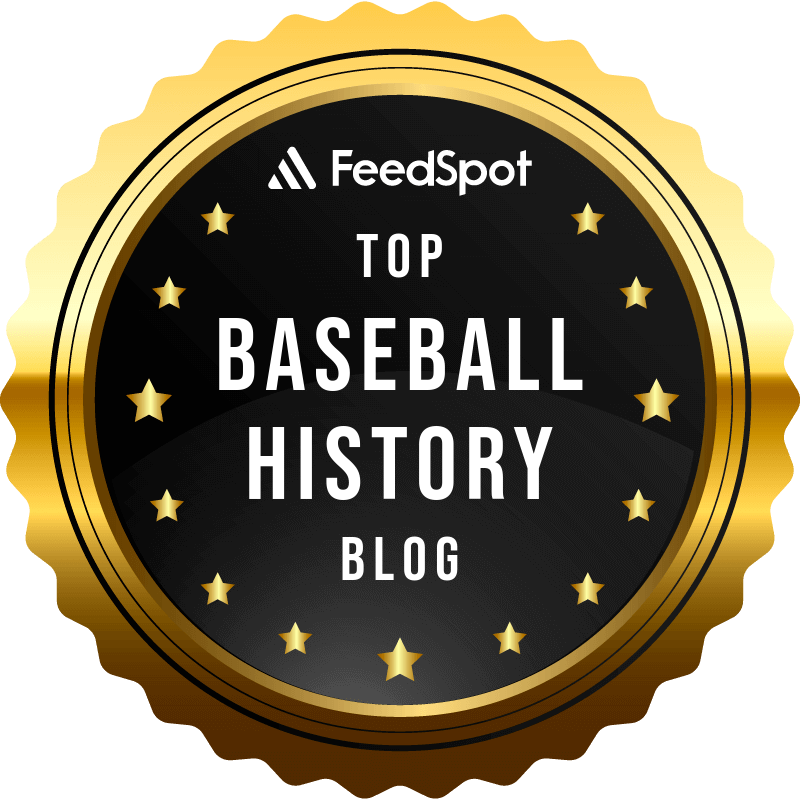
Guest Submissions from Our Readers Always Welcome! Click for details
Scroll Down to Read Today’s Essay
Subscribe to Baseball History Comes Alive for automatic updates. As a Free Bonus, you’ll get instant access to my Special Report: Gary’s Handy Dandy World Series Reference Guide!
I agree with Mark Kolier who returns to Baseball History Comes Alive with today’s essay. I find in-game interviews with players to be distracting, and, well, down-right annoying. If I was a manager, I wouldn’t allow in-game interviews with my players. They should be concentrating on the game situation.
To add a nice historical connection, in the featured photo we see Red Barber interviewing Leo Durocher in the first major league game ever televised. It was between the Reds and Dodgers at Ebbets Field on August 26, 1939. Also in the photo are Bill McKechnie (No. 1), Dixie Walker (behind Barber), and Dolph Camilli (right). Read Mark’s essay and see if you agree with him…I sure do!
And how about this prescient quote from the New York Times after the first televised major league game: “It is difficult to see how this sort of thing can catch the public fancy.” Haha! Wrong again! -GL
In-game interviews aren’t worth it
Watching the 2023 Major League Baseball playoffs hasn’t been as rewarding a viewing experience since the games themselves have been relatively unexciting. Unless of course you are a fan of the teams that are winning. Overall TV viewership is down a bit from 2022 and the combination of series sweeps plus lack of exciting and memorable moments (save for a few) is not anyone’s fault, but the data has to make Major League Baseball nervous. Change is the name of the game for MLB and this year’s new rules have had a positive impact on the fan experience. Players seem to like it too. But not all the changes MLB has made are making the game better.
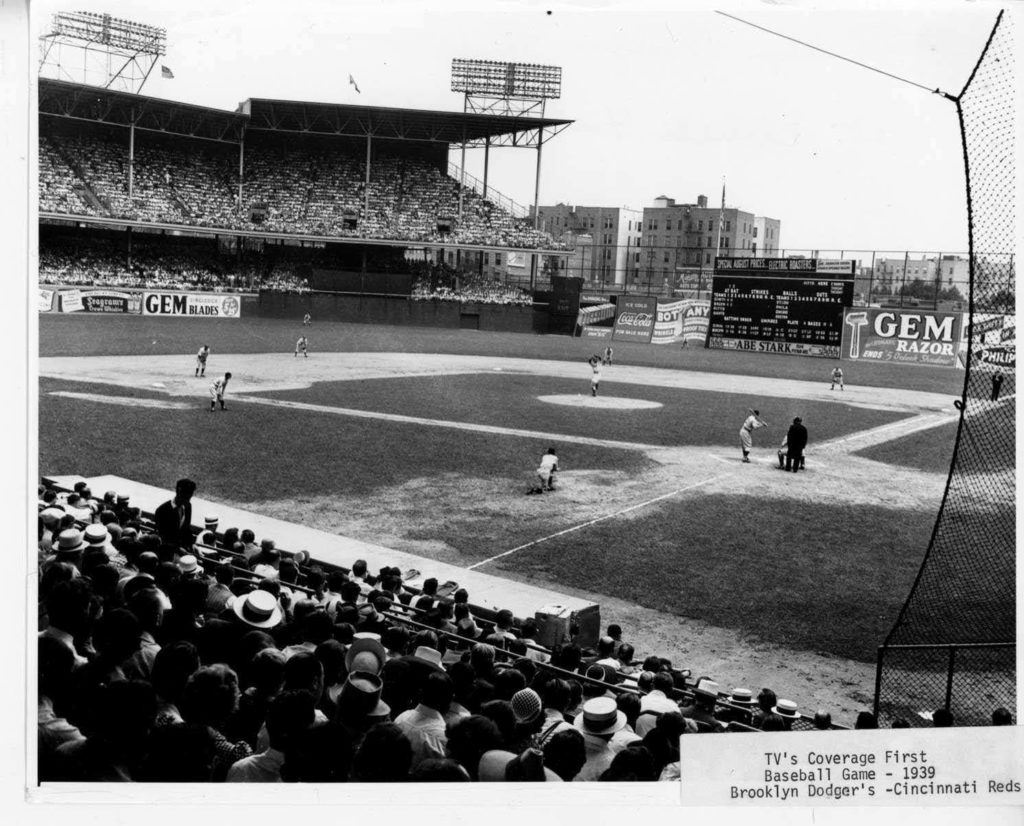
Larger bases have been well received as has the implementation of infield shift limitations. I was not in favor of taking away the infield shift, but I can’t say I’ve noticed it much or think about it at all. I’ve not heard much discussion during the playoffs about the pitch clock. To date, I don’t recall one pitch clock violation in the playoffs. Even if the games have been a little boring at least they’ve been faster-boring.
One of the more subtle changes MLB has made in its coverage over the past few years is the increasing usage of ‘in-game’ interviews with players and managers during the game. I am totally fine, (although not all that interested), with talking to a manager during the In-game since managers are not competitors. But I’m not okay with talking with players DURING THE GAME.
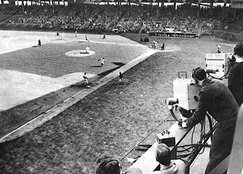
In game one of the 2023 ALCS between the Rangers and Astros, Ranger catcher Jonah Heim smashed a solo home run – the first home run he’s ever hit in the postseason. In the dugout, after the high-fives were over, Fox correspondent/analyst Ken Rosenthal was right there to interview Jonah Heim about his exploits. I’ll put it as gently as I can. I hate in-game interviews with players. Nothing against Ken Rosenthal. That’s what FOX and MLB want. The players probably like having the spotlight and don’t mind coming up with some platitude or innocuous statement about how the pitcher is tough but gave him something to hit. It’s meaningless, unnecessary, and does not make watching the game better.
I remember watching the end of an NFL playoff game in 2013 between the Seattle Seahawks and San Francisco 49ers. Richard Sherman made a game-saving play that won the game for the Seahawks and then, immediately after the game was over, sideline reporter Erin Andrews interviewed Sherman who was still in game/warrior mode. It was intense, a little bit alarming, and unfair to both the player and the reporter.
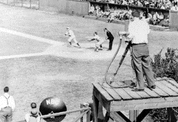
At least that game was over! During the MLB All-Star game, the past couple of seasons MLB mikes up players in the field and the commentators talk with the player while play is going on. I have no problem with that as the Al-Star game is a glorified exhibition anyway and having that kind of access is interesting and fun [Ed. note: I don’t like these either! -GL]. But in-game access to players didn’t stop there. This season it’s become a regular thing to mike up a player in the field and talk with that player during the inning. In April, New York Met centerfielder Brandon Nimmo was miked up during a game on Sunday Night Baseball and since he’s from Wyoming he was asked if he watched ‘Yellowstone’ which is set in Montana. This was during the game. Nimmo like all the players that agree to be miked up for SNB had to agree to do it and of course was paid $10,000 by MLB for his appearance. Considering that Nimmo had in the off-season just signed an 8-year $162M deal with the Mets, it couldn’t have been all about the money, but it’s all about the player’s choice. With the manager’s blessing no doubt. Although I can’t see a manager telling his player not to do in-game interviews or making it a team policy.
Today’s professional athletes are savvier about their off-the-field opportunities than all those who came before them. In fact, players’ ability to monetize their fame and reputation is also at an all-time high. Yet in my mind, baseball has crossed a flashing red line by conducting interviews with players during the contest. Football doesn’t do this. Hockey and basketball don’t either. Could you imagine announcers talking with LeBron James during the game? Talking with competitors during the competition seems counterproductive to me. I want the players to be able to focus one hundred percent on the game during the contest with no other focus. This is better for the team, for the player, and for the fans. To boot, rarely is anything important revealed in one of these in-game interviews. Players are programmed to not say anything controversial and being in game mode the players can’t possibly be expected to provide thoughtful answers. So why do in-game interviews at all? These puff-ball interviews are insulting to the intelligence of the fans. I wish the players themselves would put a stop to it but apparently the lure is too strong.
The pace of a baseball game does present opportunities unavailable to most other sports. This does not mean every idea tested is a good one and in the case of in-game interviews, the experiment should be tossed out the window. MLB has gone where no other professional sport has gone before. That’s not always a good thing.
Mark Kolier
About the Author: Mark Kolier along with his son Gordon co-hosts a baseball podcast called ‘Almost Cooperstown’. He also has written baseball-related articles that can be accessed on Medium.com and now Substack.com.
Subscribe to our website, Baseball History Comes Alive with over 1400 fully categorized baseball essays and photo galleries, now surpassing the one million hits mark with 1,105,000 hits and over 950 subscribers
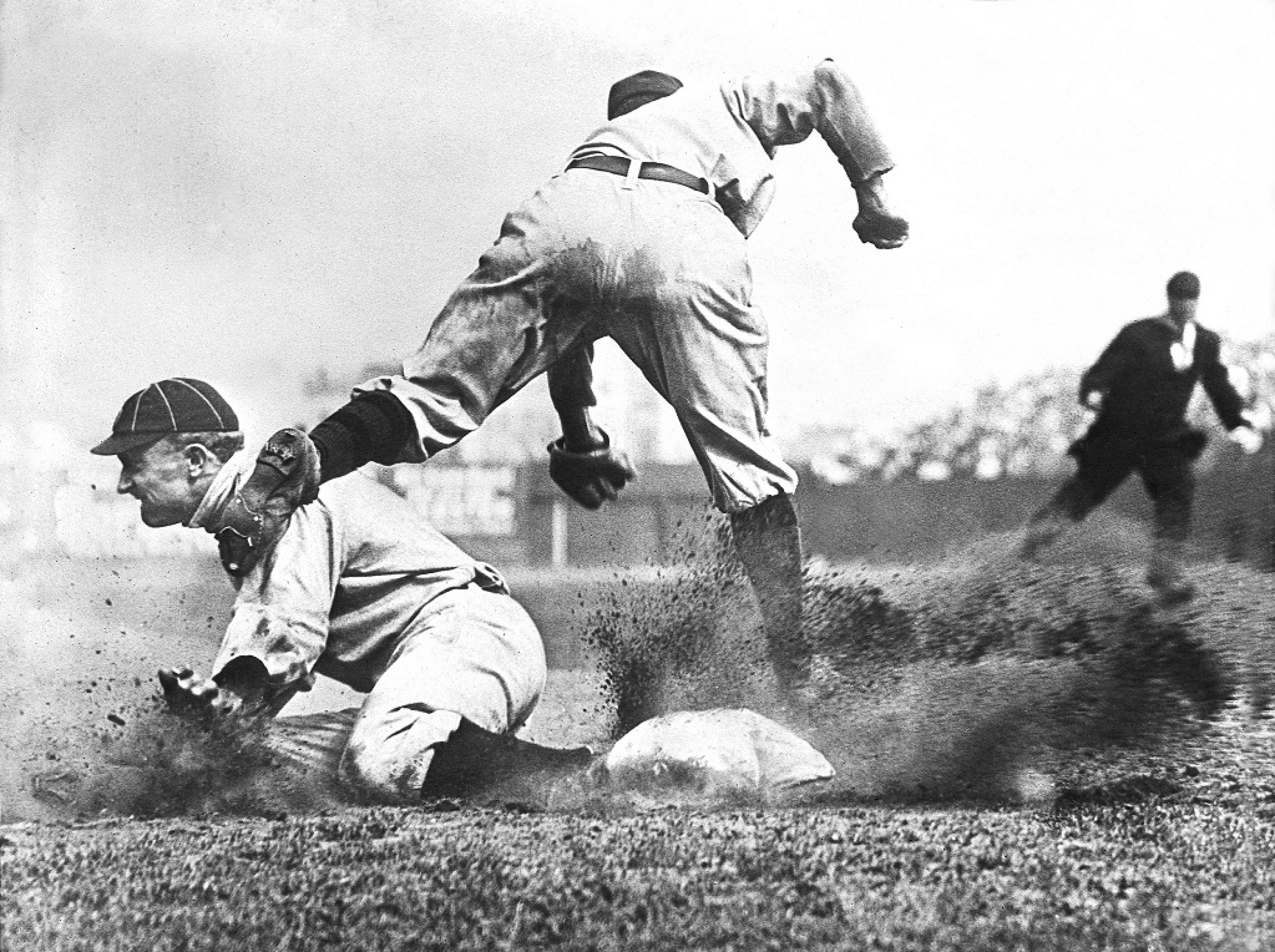
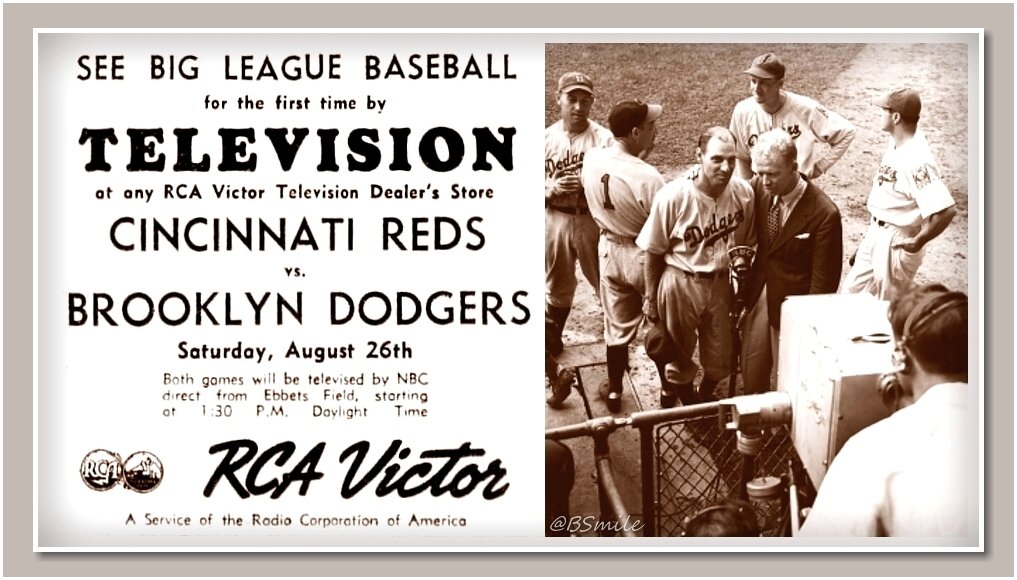

Get standard lines and really no information!
I agree, Gary!
I would have loved to have seen an interview with Brandon Marsh after his last AB Friday night. You could tell by his gestures and some lip reading that he was telling the umpire that he called one off the plate inside a strike, then he called one off the plate outside a strike.. I don’t mind an umpire who calls strikes high or low, or has a generous strike zone, but be consistent.
As immensely talented as these players are, the level of play remains poor, the officiating is fair, at best, far too many pitching changes, and the players have no sense of the strike zone anyway (swinging at bad pitches and then looking at a perfect pitch for called strike three).
I haven’t watched a full game in years, including this year, and this coming from a 72 year old that has forgotten more about the game (literally) than most fans of today will ever know.
I’ve never learned anything from these annoying in-game interviews. Not a darn thing! Totally ridiculous!
I ignore them and turn off the tv immediately after the game to avoid the same type of interviews.
I know absolutely that telecasts are not aimed at my age group, but were I asked how to improve them I would say, “In two words, SHUT UP!” The endless prattle from three people in the booth plus a roving reporter and now in-game from players and managers, when will it stop? Part of the enjoyment of watching a game is the anticipation of the next pitch, the weighing of the strategy in your mind, the analysis of the results. How can you do this with all the babble around you? I’m sure we’ve all been to games in person where the guy behind you never shuts up, sharing his expertise on every nuance of the game with his less-informed partner or young child. That’s what telecasts have become. Lastly, the All-Star game is dead to me. It’s become a joke from the selection process right through the abdications and finally the requirement that the managers play every single player regardless of the game situation.
Thanks for checking in, Andy. All good points and I agree with them all. Which is why I continue to watch games with the sound down or muted!
I agree and usually hit the mute button. If I don’t know what is going on, I need a new hobby.
I can’t stand the incredible inanity of the “interview” which I view as a rude interruption of what the televised game is supposed to deliver: THE BASEBALL GAME, NOT inconsequential drivel from the interviewer and the player.
I agree with Andy, just shut up!!! Commentators think they must explain every move that’s made on the field. They even talk to the players when they’re in the field.
I used to enjoy Gordon McLendon recreating old games on the radio. Very interesting. Anyone else remember?
In short, I think it is terrible that MLB is allowing players to accept money to be distracted while a game is actually in progress! The game is hard enough without the added distractions, and the interview questions are a complete waste of time. I am appalled by the fact that the union has allowed this to happen as it puts the players at risk for serious injury and it detracts from the professionalism of the game.
But I must say that the best game in progress interview that I saw was during last year’s playoffs. Bryce Harper was seen in the dugout saying something to Alec Bohm, who was heading out to the on deck circle. When he came to bat, he got a critical big hit. So shortly thereafter they interviewed him and asked him what Harper had said to him in the dugout before he came to bat. Without any hesitation, Bohm told the interviewer that what was said by Harper, was for only him and Harper to know. Interview over!
Thanks Joseph…great points and great observations! Looks like we’re all on the same page on this one.
Insofar as televised baseball is concerned the less talking the better. Give me one announcer in the booth and no interviewers on the field.
Could not agree more. They should not be allowed.
I agree with everyone. Baseball is going the way of WWE Wrestling and Roller Derby. Pitch clock is the only new rule I can agree with, making bases bigger to allow more stealing affects the history of the game, if the infield shifts then hit the ball where they ain’t. If baseball wants more offense then only permit them to use the gloves that were in vogue in the thirties and prior, then we would see more .350 hitters and runs. Go back to 154 games and get rid of all this playoff nonsense.